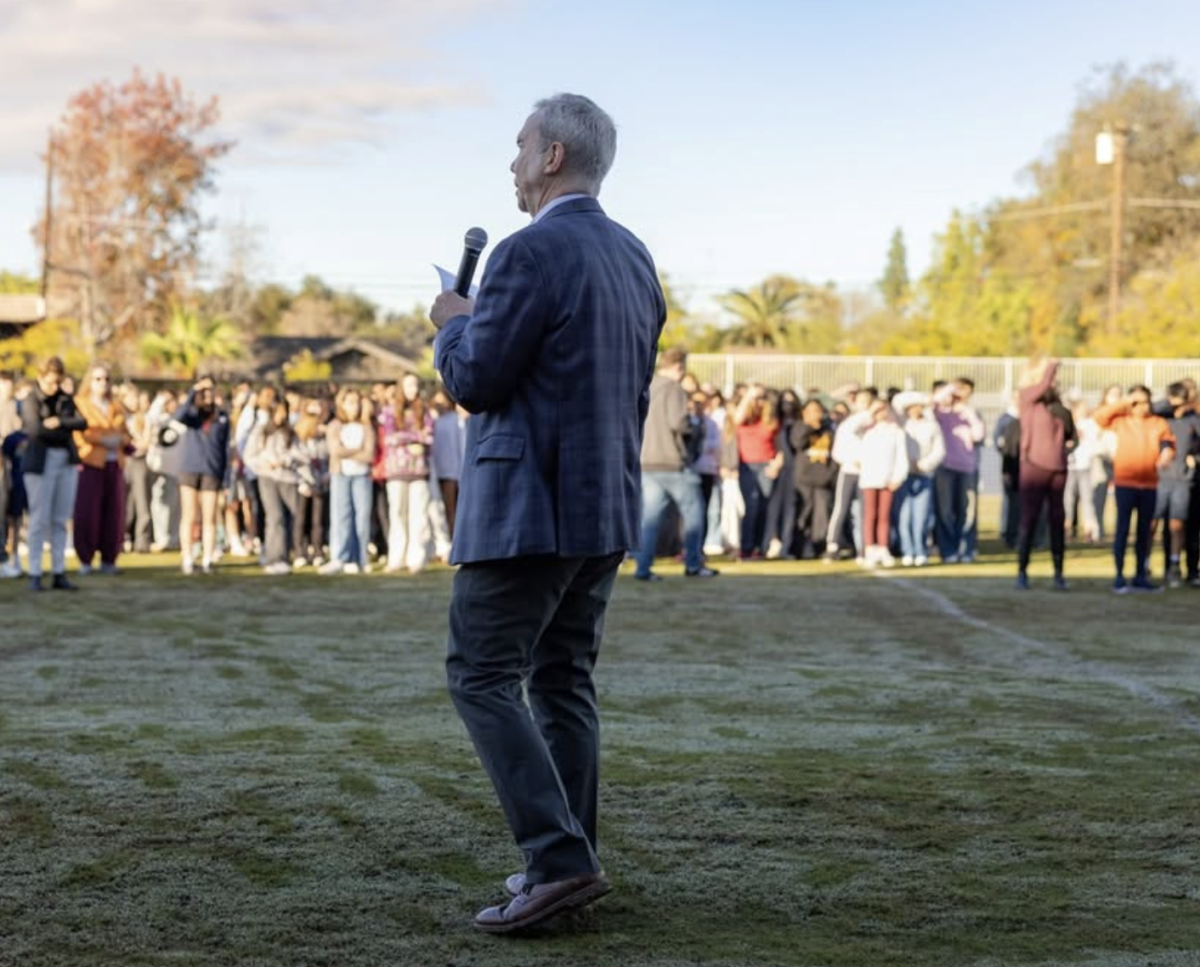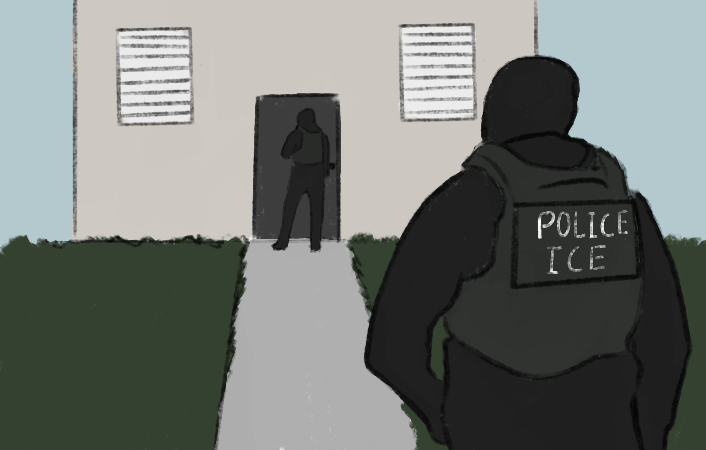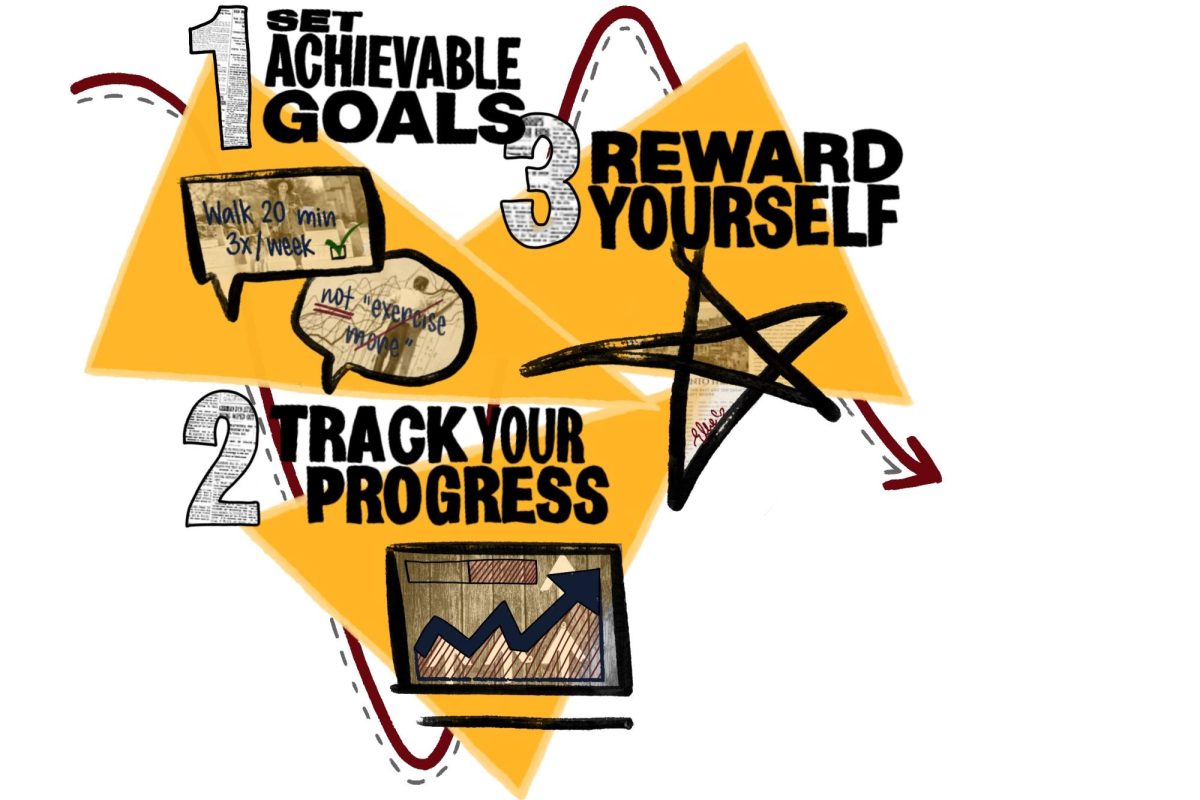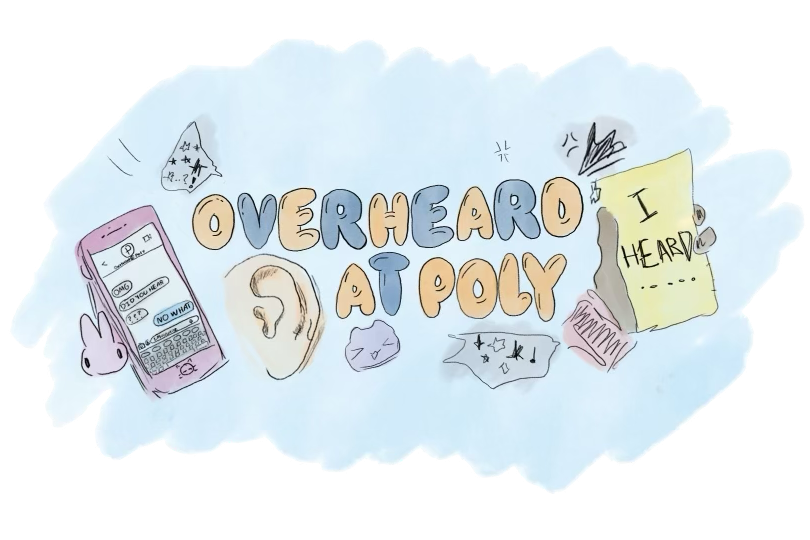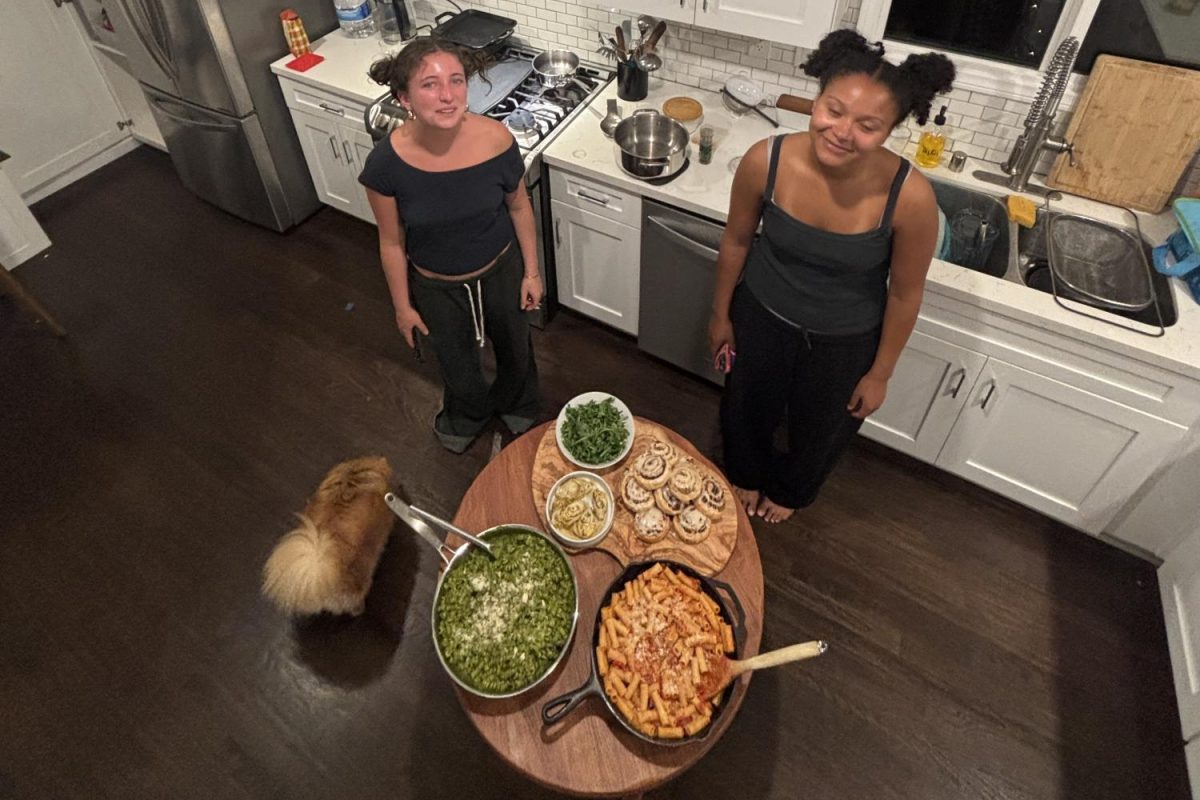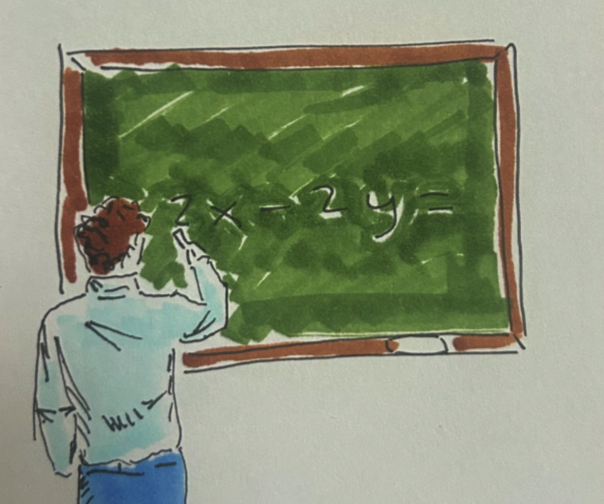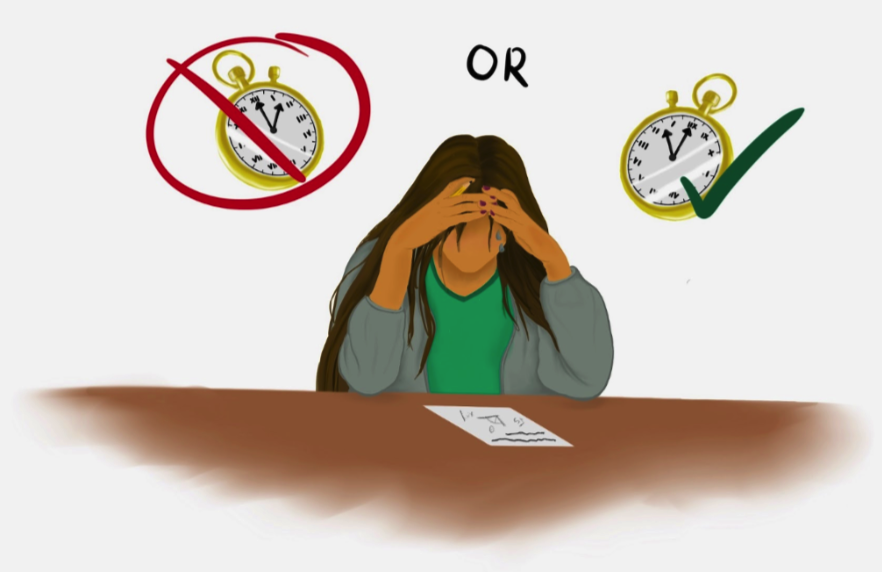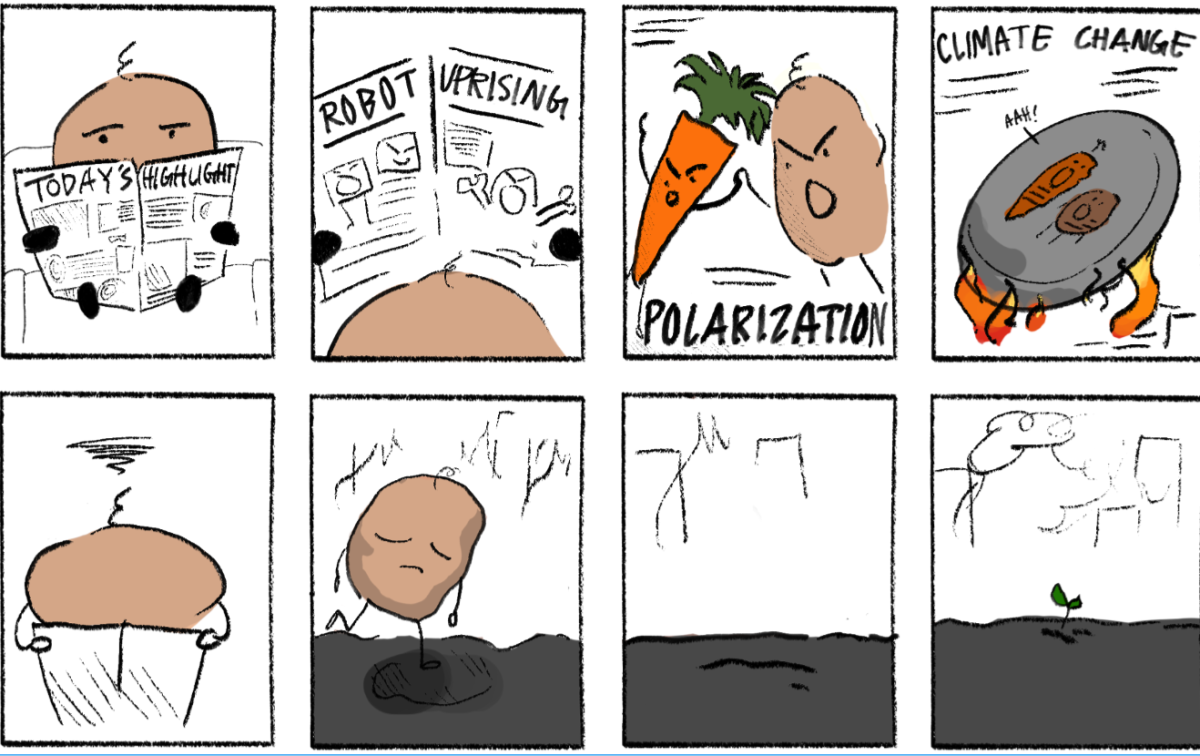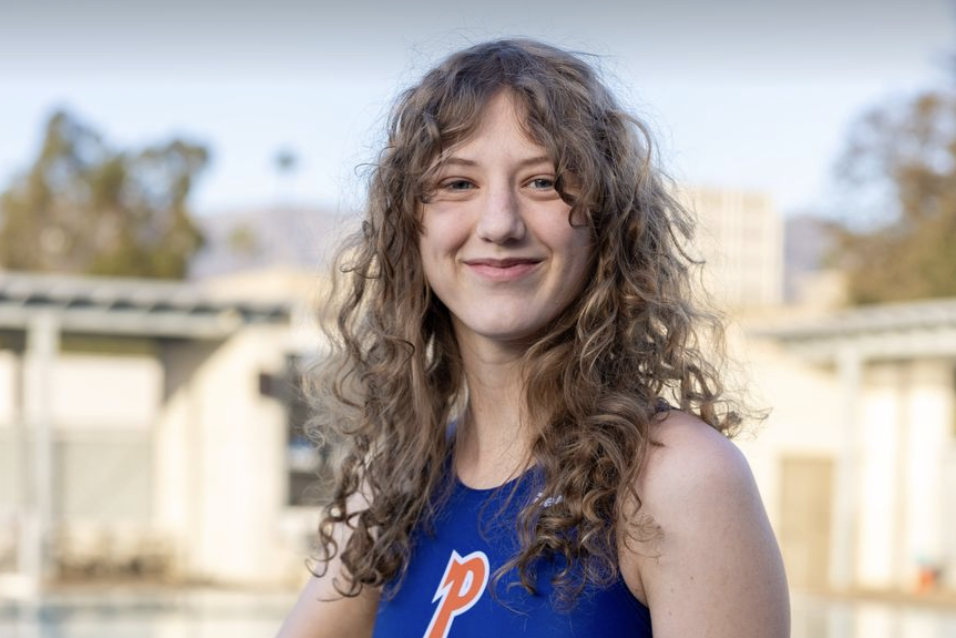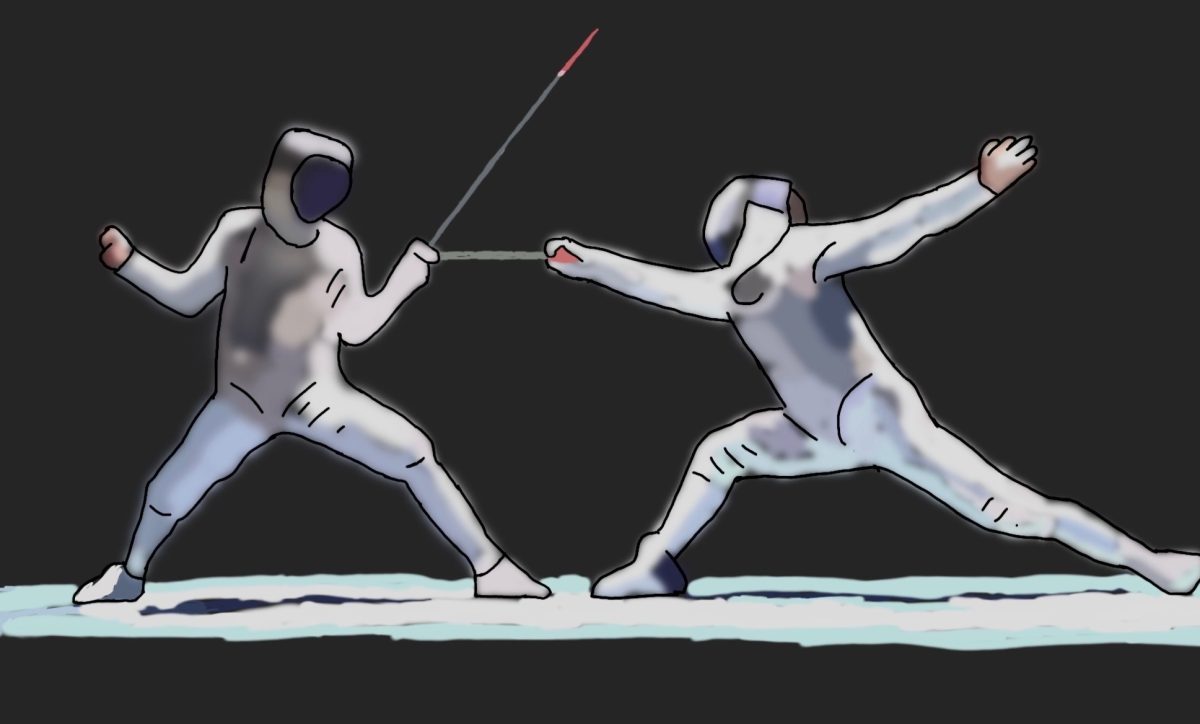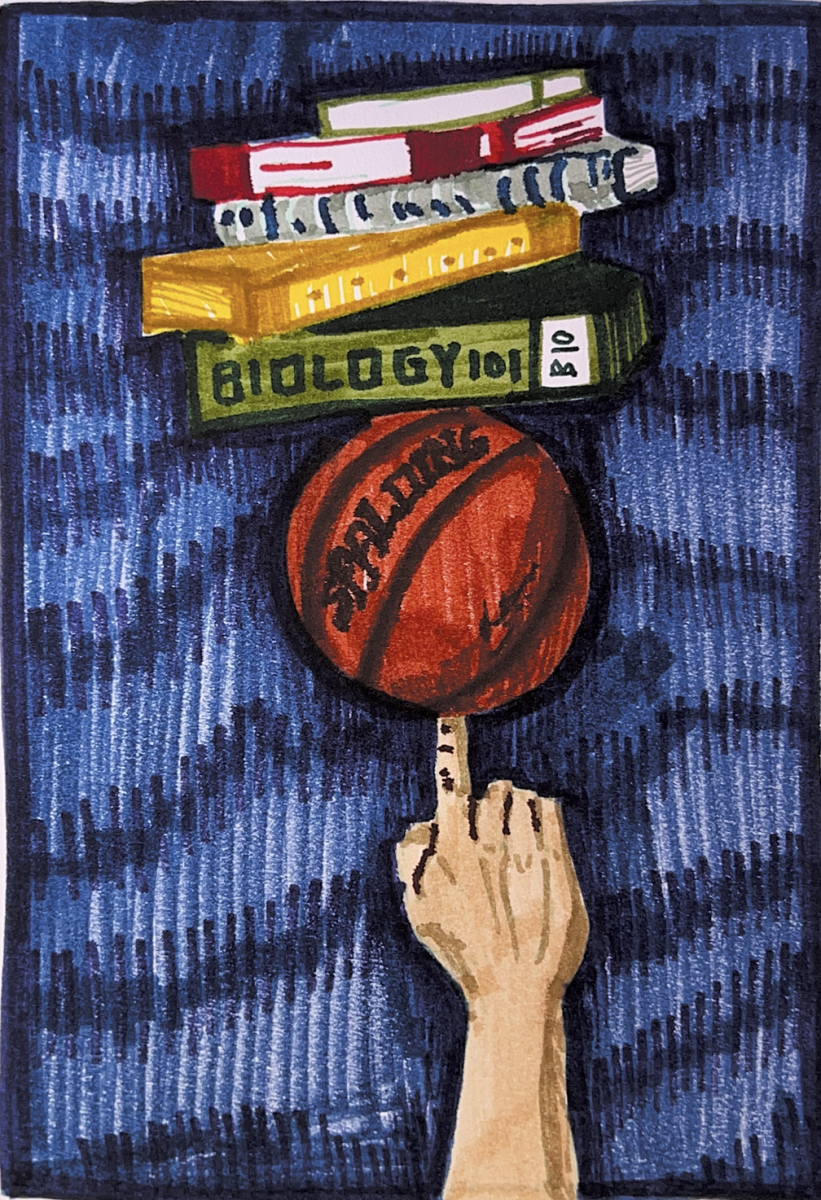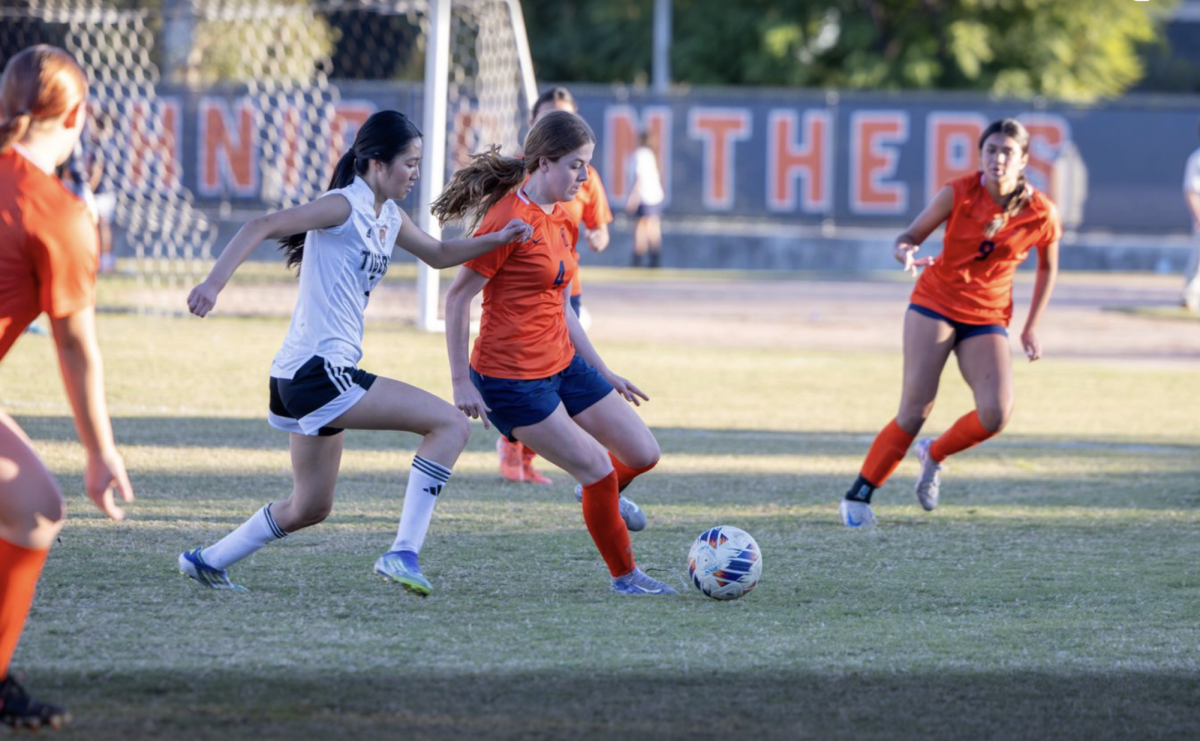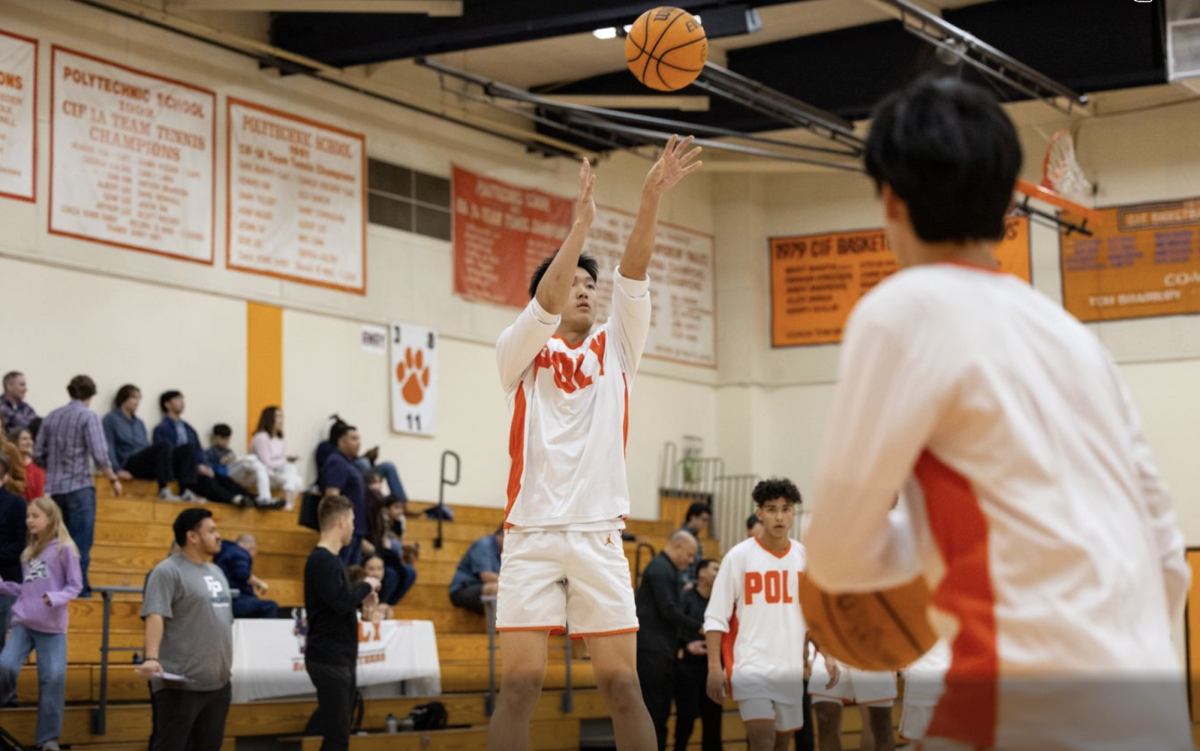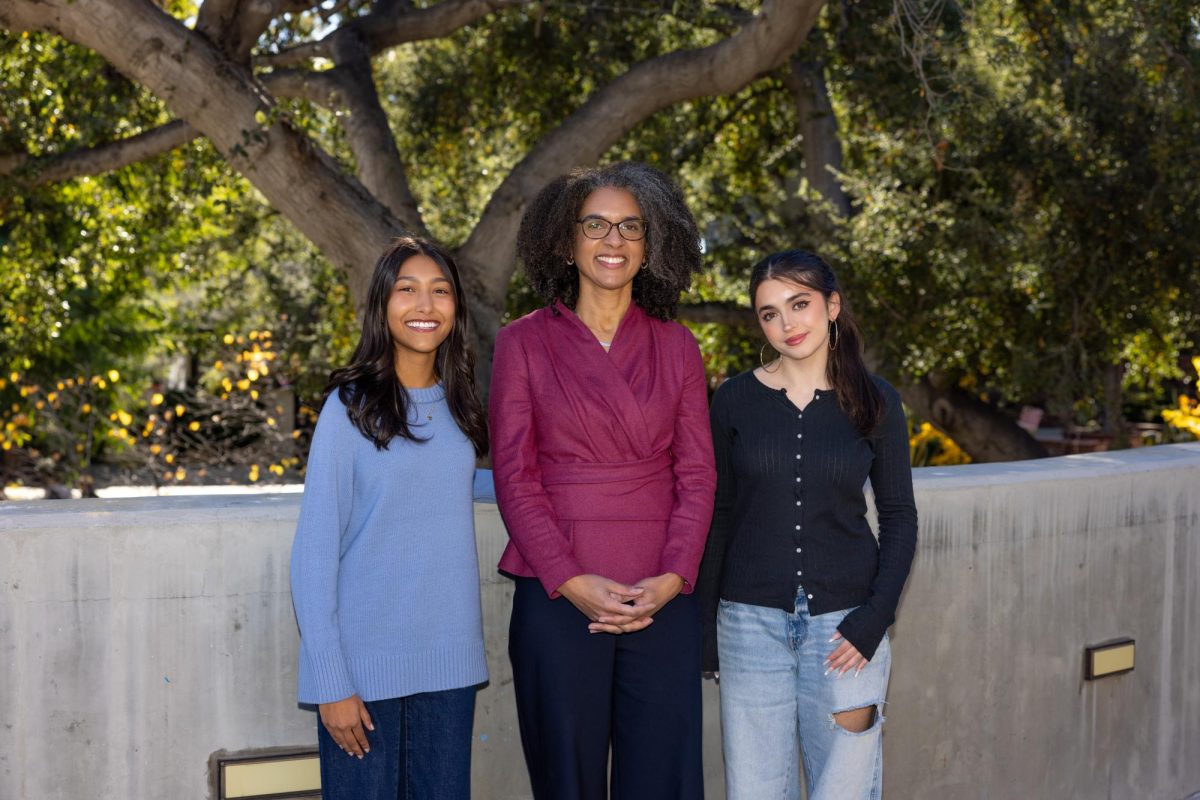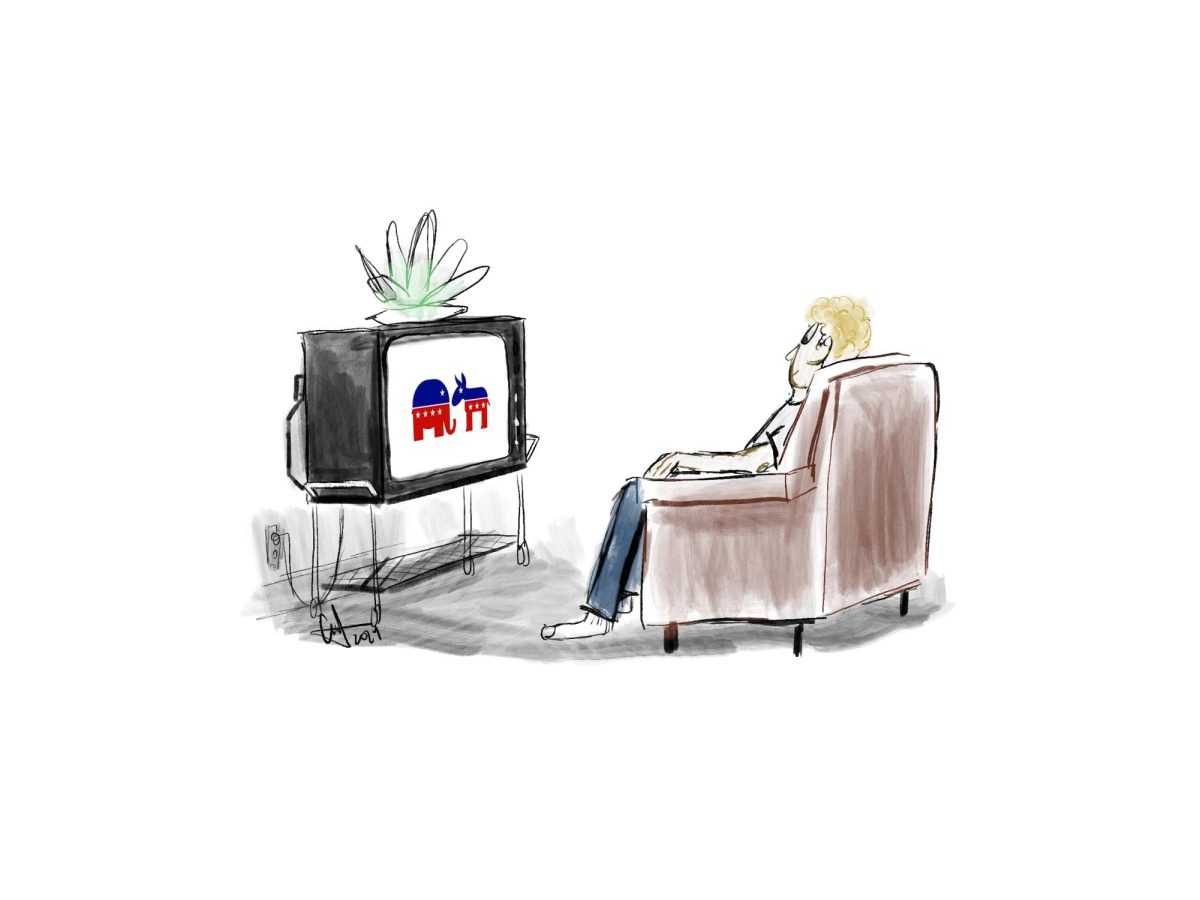How much do you know about politics? If you say “not much,” you fall into the category of the vast majority of teenagers. Only 22% of students are “proficient” in civics comprehension, according to a study conducted by the Institute for Citizens and Scholars. As we approach the 2024 presidential election, it becomes increasingly important that students learn more about our country’s government. With a raging current of media platforms portraying polarized perspectives and household views skewing young children’s ideologies, we must become politically engaged.
Many students — and even adults — tend to avoid politics as they find it boring; thus, they do not regularly watch the news or read beyond the most striking headlines. In fact, 65% of people in a Pew Research Center poll said they feel exhausted when thinking about politics. Becoming engaged doesn’t have to be a burden, though. Watching the news for just 20 minutes a day while eating breakfast, for example, can be both entertaining and a way to increase interest in political affairs.
Freshman Abe Coher, who follows politics, described his first days learning about civics in the first grade as “amazing, very fun, enjoyable times.” Coher believes all students can share this perspective by learning a little bit about politics each day.
It’s important to understand that, even if we can’t vote in an upcoming election, understanding politics is important to our futures. Freshman Eleanor Yohalem believes that she will grow more interested in learning about politics when she becomes old enough to vote. However, beginning the learning process at 18 puts us years behind, providing immense disadvantages when it comes to making well-informed political decisions.
When asked why he remains engaged with politics as someone unable to vote, Coher said, “What happens today in politics is going to affect not only the policy of the future but also our lives.” Coher highlights why understanding policy now will arm us with the knowledge we will need in the future to fix the problems plaguing our nation.
Following politics also helps students academically. A deep understanding of how the government works can help you better understand history and social studies classes, and, when learning about ancient civilizations, you can see the connections between ancient politics and present-day policy.
When engaging in class discussions, it’s imperative that we come from an informed position and don’t fall into sheltered points of view. Polarization is at an all-time high, and a lack of understanding of every perspective from a young age is a key contributor.
In addition to many students’ disinterest in politics, a root cause of our lack of engagement is the absence of at-home discussion. Yohalem said that she has more recently become interested in the election because of the intense ups and downs. Even so, she also says she only follows well-known events like the attempted assassination of former President Donald Trump and President Joe Biden dropping out of the race. She also could not recall the name of Vice President Kamala Harris’ running mate in this election. She shares that it’s hard for her to learn about the nuances and less sensational details when her only source of political discussion comes from the most popular headlines, and often from social media sites rife with misinformation.
Finally, some students may understand the importance of politics but don’t know how to learn more about politics or become involved in political life. My recommendation? A politics-centered student club. The upcoming election in November is forecasted to be one of the most eventful elections since we’ve been alive. A nonpartisan student-led politics club could teach and educate the rest of the student body. In this club, students could share news about the election and recommendations for different news sources to check out and discuss their ideas about candidates and propositions.
Presently, Poly does not offer a politics club, but if we did, we could help each other make informed decisions about candidates and propositions once we become old enough to vote. Students who are currently politically engaged could encourage their friends to begin following the news, update the student body on what we miss by only reading the headlines and foster a sense of awareness within our community through Morning Meeting announcements and weekly meetings. Let’s begin the journey that will lead us to a better future. After all, we are that future.

